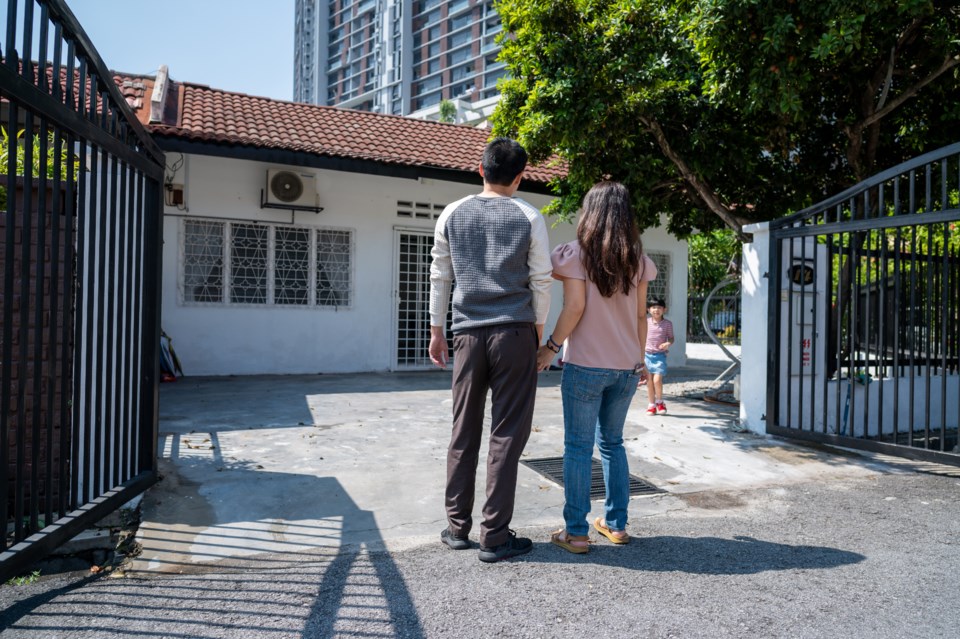I recently joined the ranks of longtime locals who have left Whistler for greener pastures. Or at least slightly more liveable pastures. Yes, I have officially committed to the Sea to Sky shuffle, swapping a too-cheap-to-be-true shoebox in Alpine with no actual window or functioning oven for a right-at-the-edge-of-my-budget bright, modern unit in downtown Squamish.
Unlike each Whistler place I’ve landed in my decade here, I tried to listen to my gut more so than my bank account on this one—but that’s a luxury many locals can’t afford.
Year after year, the police blotter is filled with stories of young foreigners eager to score a place here only to discover the hundreds of dollars they just sent to some scammer was for a home that either doesn’t exist, or is very much not for rent.
Sure, you can scoff at the naivety of sending money to someone you’ve never met for a place you’ve never seen, but there’s a reason these scams are effective. They prey on a young and desperate workforce trying to enter one of Canada’s tightest, costliest real estate markets, in a town they are unfamiliar with. The advice you always hear is to get someone you know and trust to check out the place in person to make sure it’s legit, but what if you don’t know anyone here? Then, if you do get scammed, and you, a 20-something from overseas with only a tenuous grasp, if that, on Canadian law and probably very little desire to get police involved in your short time here… are you likely to report it? I suggest not. Even after all that, if you do file a report, there is almost nothing the police can do. These scammers commonly live outside of the country, outside of the RCMP’s jurisdiction, and are likely to have covered their online tracks anyway. It’s the kind of severely underreported crime that makes you wonder: how many young people missed out on the Whistler dream before it even began that we just simply never hear about?
But it’s not only the young seasonals suffering the dehumanizing effects of the Whistler housing hunt. Economic forces have created such a pressure cooker that even if you do find a place you love like I did, there are dozens of other candidates you have to compete with. I’ve heard stories in both Whistler and Vancouver of renters—not homebuyers, renters—forking over hundreds of dollars on top of their deposit just to secure a place. Along with being illegal, this kind of wheel-greasing is yet another example of the ways money will get you a leg up on the people who actually need housing the most.
It also means every interaction with a potential landlord or roommate is fraught with all the phony performativeness of a job interview. If you’re lucky, you’ve got 20 minutes to make an impression, probably not the most effective way to determine where you’re going to lay your head for the next year. Oh, and if you are fortunate enough to have a place offered to you, don’t even think about taking any time to mull it over, because if you don’t snatch it up at record speed, it’s just going to go to the next person on the list.
How, in one of the most modern, progressive nations in the world, is this still how we provide an essential, inalienable human right—shelter—to our citizens? I realize this isn’t exclusive to Whistler, or Canada, for that matter, and there are things being done to make the housing hunt a little bit smoother for everyone involved. I know Jen Biberdorf and the moderators of the Whistler Housing Rentals for Locals Facebook group work hard to ensure the housing that gets posted there is legit, but it is still an unregulated, volunteer-led group done off the sides of their desks. It shouldn’t have to fall on their shoulders. Then there are the for-profit models I’ve seen pop up, like the woman who messaged me after I posted on the Squamish housing forum offering her services: for a flat rate, I could fill out a questionnaire about my housing preferences and be matched to a suitable landlord. If I wound up accepting a unit she connected me to, she would get paid again. It’s not a terrible concept, to be honest, but it was, again, an unregulated service offered by a stranger who I had no way of knowing actually had my best interest in mind or not. (I declined her offer, by the way.)
If this was something led by, say, a local non-profit with the mandate and the resources to go out and either suss out housing on a client’s behalf, or help match them directly to a pool of participating landlords, then I think we’d be getting somewhere. Think of them like outreach workers, except for housing. The Whistler Housing Authority (WHA), for all the great work it does to house the resort’s young families and management class, has, if we’re being honest, grown out of reach for many on the lower end of the market. Besides, the young, transient demographic that’s only here for a season or two (and therefore ineligible for WHA) needs a place to live, too.
Adding more housing stock is just one piece of the puzzle. To paraphrase something Whistler Community Services Society director Jackie Dickinson told me recently: housing is wellness, and until we start thinking long and hard about how we can humanize the housing hunt, Whistler’s long-term well-being will remain at stake.




